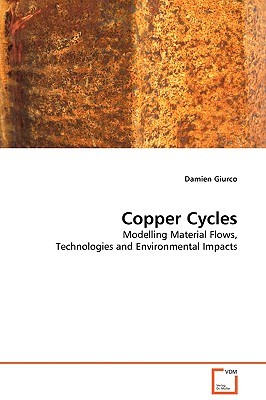
- We will send in 10–14 business days.
- Author: Damien Giurco
- Publisher: VDM Verlag
- ISBN-10: 363912619X
- ISBN-13: 9783639126198
- Format: 15.2 x 22.9 x 1.9 cm, softcover
- Language: English
- SAVE -10% with code: EXTRA
Reviews
Description
The environmental impacts of resource use in society are being increasingly scrutinised, particularly in response to the challenge of climate change. We need to better understand the impacts of producing and recycling metals through the global economy. Traditional approaches, namely, those seeking increased efficiency largely within processing technologies, must be broadened to consider the entire production and consumption cycle. With copper as its focus, this book develops a multi-scale framework for characterising material flows through the production and consumption cycle. Models of material flows and of existing and new copper processing technologies are linked to inform environmental performance, based on a Life Cycle Impact Assessment approach. The analysis shows how an increased recycling of copper reduces environmental impacts far more dramatically than introducing new technology for processing terrestrial ores, which themselves are declining in quality. This data-rich work will be of interest to academics, minerals industry professionals and policy makers with an interest in developing strategies to deliver resource governance for sustainability.
EXTRA 10 % discount with code: EXTRA
The promotion ends in 17d.17:26:57
The discount code is valid when purchasing from 10 €. Discounts do not stack.
- Author: Damien Giurco
- Publisher: VDM Verlag
- ISBN-10: 363912619X
- ISBN-13: 9783639126198
- Format: 15.2 x 22.9 x 1.9 cm, softcover
- Language: English English
The environmental impacts of resource use in society are being increasingly scrutinised, particularly in response to the challenge of climate change. We need to better understand the impacts of producing and recycling metals through the global economy. Traditional approaches, namely, those seeking increased efficiency largely within processing technologies, must be broadened to consider the entire production and consumption cycle. With copper as its focus, this book develops a multi-scale framework for characterising material flows through the production and consumption cycle. Models of material flows and of existing and new copper processing technologies are linked to inform environmental performance, based on a Life Cycle Impact Assessment approach. The analysis shows how an increased recycling of copper reduces environmental impacts far more dramatically than introducing new technology for processing terrestrial ores, which themselves are declining in quality. This data-rich work will be of interest to academics, minerals industry professionals and policy makers with an interest in developing strategies to deliver resource governance for sustainability.


Reviews